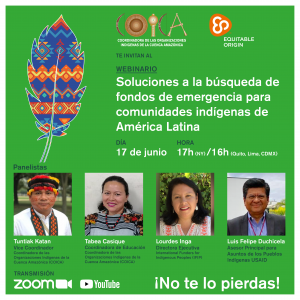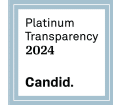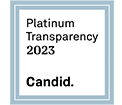
On Wednesday, June 17, 2020, Equitable Origin, in collaboration with the Coordinator of Indigenous Organizations of the Amazon Basin (COICA) hosted a virtual seminar on "Access to Emergency Funds by Indigenous Peoples: Available Resources and Access Mechanisms".
The COVD-19 pandemic has increased the challenges and vulnerability of the more than 600 indigenous communities living in the Amazon basin. This region is a strategic area not only for its enormous biological diversity and for the environmental services it provides, but also for being home to hundreds of ancestral communities. Likewise, emergency funds are scarce, and many do not reach rural populations inmarginalized and remote areas, such as those in which indigenous communities live.
The webinar organized by COICA and Equitable Origin sought to provide tools to empower indigenous communities to address inequality of access to funds and financial resources that allow them to run their own programs in response to the global health emergency.
The webinar began with a first panel featuring Tuntiak Katan, indigenous leader of the Shuar Nation of Ecuador and Vice Coordinator of COICA. In addition, Tabea Casique, indigenous leader of the Asheninka of Peru and responsible for the Coordination of the Education, Science and Technology Area of COICA provided her reflections on the challenges communities are facing with the pandemic. The panel was moderated by Soledad Mills, Executive Director of Equitable Origin.
First, Tuntiak described the Amazon Emergency Fund, recently created to respond to the pandemic. Faced with the needs that arose in the different communities in the Amazon, COICA promoted an alliance that became a fundraising platform, with more than 20 partner organizations, as well as COICA’s member organizations in nine countries. Tuntiak explained that they have started looking for resources mainly to respond to the humanitarian emergency, with a focus on food, prevention kits and medicines, and COVID-19 tests.
Tuntiak added that at the moment it has been possible to channel $20,000 for each of the nine COICA countries, but that this amount is not sufficient for the needs of indigenous populations as it will not even reach 10 percent of the population. Tabea agreed that what was raised for the fund is not enough to cover urgent needs and that there is a deficiency in health care for the communities.
Tabea emphasized the importance of the initiative due to the lack of systems of care with a focus on intercultural health in the Amazon countries and the lack of public policies that prioritzie Indigenous Peoples. In addition, Tabea explained that there are no medical professionals to attend to indigenous populations. COICA has trained young technicians but they do not have indigenous professional doctors. Tabea also described how COICA is prioritizing and distributingthese funds by choosing critical places for immediate care and prevention. While COICA has not yet reached their fundraising goal, they hope that more organizations will support the Fund.
The panel also discussed the continuity of the Fund and COICA's medium and long-term strategy. In this regard, Tuntiak stated that, in COICA, they have a broader vision and are thinking about post-pandemic strategies through additional programs to meet other needs. Tuntiak described the indigenous economy program that seeks to promote economic recovery that is expected to launch in July with the aim of supporting sustainable community ventures.
The second panel featured Luis Felipe Duchicela, Senior Advisor for Indigenous Peoples Affairs for the Center of Excellence in Democracy, Human Rights and Governance of the USAID Office of Democracy, Conflict and Humanitarian Assistance, and Lourdes Inga, who has more than two decades of experience in international philanthropy with multilateral organizations, and now leads the International Funders for Indigenous Peoples (IFIP).
Luis Felipe began by describing the types of financing that exist for Indigenous Peoples and noting that, in every sense, indigenous organizations receive a minimum amount of global funding. Luis Felipe also reminded us that, although we are in an emergency situation today, indigenous populations have a history of needs as they tend to have the least access to services. Aid for the emergency is centralized in the urban areas, where the population is concentrated, whereas indigenous groups in more remote areas have remained invisible. Luis Felipe stressed that it is necessary to ensure that countries prioritize Indigenous Peoples to ensure that humanitarian aid reaches them.
Lourdes complemented Luis Felipe’s comments by showing philanthropic financing statistics between 2011 and 2015 that demonstrate that indigenous populations have only received 1.2% of the funds that come from the United States. Lourdes acknowledged that the philanthropic sector has historically underfunded Indigenous Peoples’ programs and organizations. Furthermore, the sector is now facing its own challenges, due to budget cuts as a result of the COVID-19 crisis.
Both panelists offered recommendations for communities seeking funds. First, they suggested that indigenous organizations focus not only on the emergency and on the short term, but also on a longer time horizon. This implies developing managerial capacities and having a 5-15-year strategic plan, with indicators to demonstrate results. They encouraged indigenous organizations to develop their own capacities in order to overcome the hurdles involved in accessing donor funding. Lourdes also stressed the importance of researching donors in order to understand their priorities and what issues they support and finance. Lastly, Lourdes highlighted some resources for searching for funders such as the GrantSpace website that offers training workshops on fundraising.
Written by Maria Julia Arana (Communications and Sustainability Consultant)




You must be logged in to post a comment.